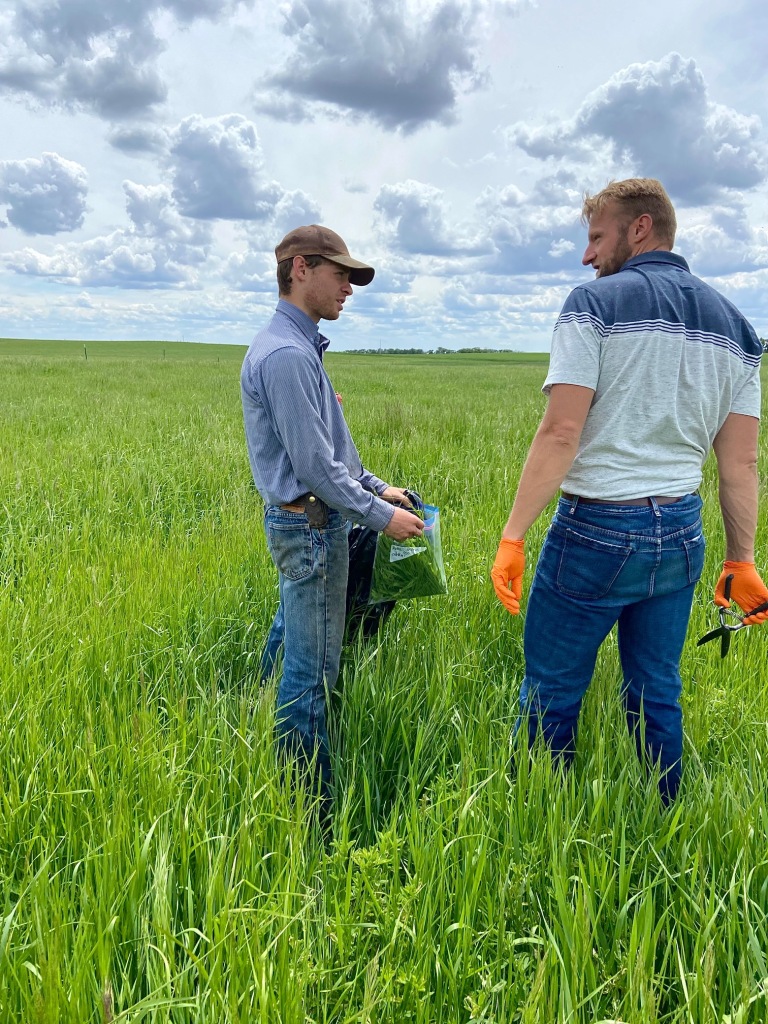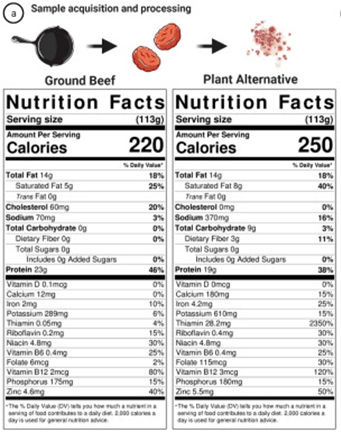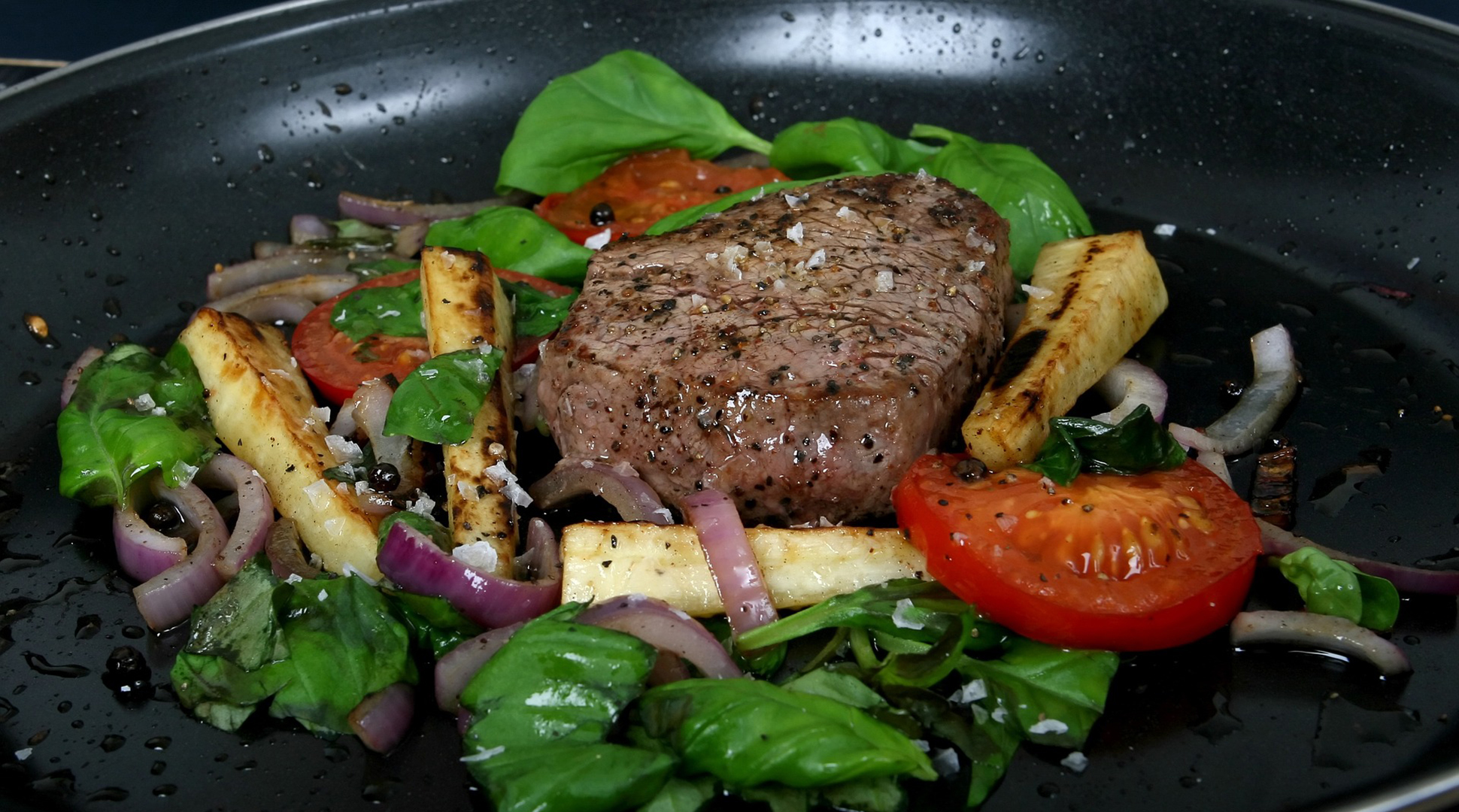by Emmery Mehlhoff, NDFB Public Policy Liaison
A scientist visited our farm this week.

Dr. Stephan van Vliet took samples of our pasture’s soil and grass. When we butcher our steers, he will take samples of the meat and organs and test for the nutrient content of the beef. He will compare the beef and what it ate it with other beef and what it ate to find out how the animal’s diet affects the nutrients in the meat.
This isn’t the first research work he’s done on meat.
Stephan van Vliet is a research scientist who specializes in metabolic function. He and his research team recently published a study comparing real beef to plant based “beef.” On the surface, plant “meat” and real meat look eerily the same. The nutrition labels show similar protein, fat and carbohydrate content.

Dr. Van Vliet’s study shows, however, what we intuitively know already: there’s more to beef than the “at-first-glance” nutrition profile. That nutrition label doesn’t tell the whole story. The study looks at the more than 26,000 metabolites, the compounds necessary for metabolism, found in both “meats.”
The early results of the study showed “a 90% difference in nutritional profiles of beef and a popular plant-based meat… [these difference] indicate that these products should not be viewed as truly nutritionally interchangeable.”
Read studies here:
Impossible to go Beyond Beef? A Nutriomics Comparison
All of these nutritional compounds function as spark plugs in the body, playing an important role in many of the body’s purposes. The differences in these compounds set real beef and plant “beef” apart. (Check out the research for more scientific details about the differences).
Labels and claims can make shopping confusing. Many popular buying trends are based on buzzwords that may have little connection to the actual nutrition or quality of the product. With all of “plant” meat’s promises and the current anti-livestock narrative, research like this can bridge the gap between the shopper and the farmer.
We are also excited to see the results of van Vliet’s current study about how feed and soil health may affect the metabolites and overall nutrient composition of beef. The data could help us know what to feed for optimal health and nutrition in our beef. We’re excited to find out more of what it takes to provide the most nutrient-dense beef to our friends and neighbors.
This post first appeared on My NDFB Life, a blog written by members of NDFB's staff. In addition to her job at NDFB, Emmery is a farmer and mom. She and her brother, Ezra, produce a podcast for NDFB called Straight Talk with NDFB.
